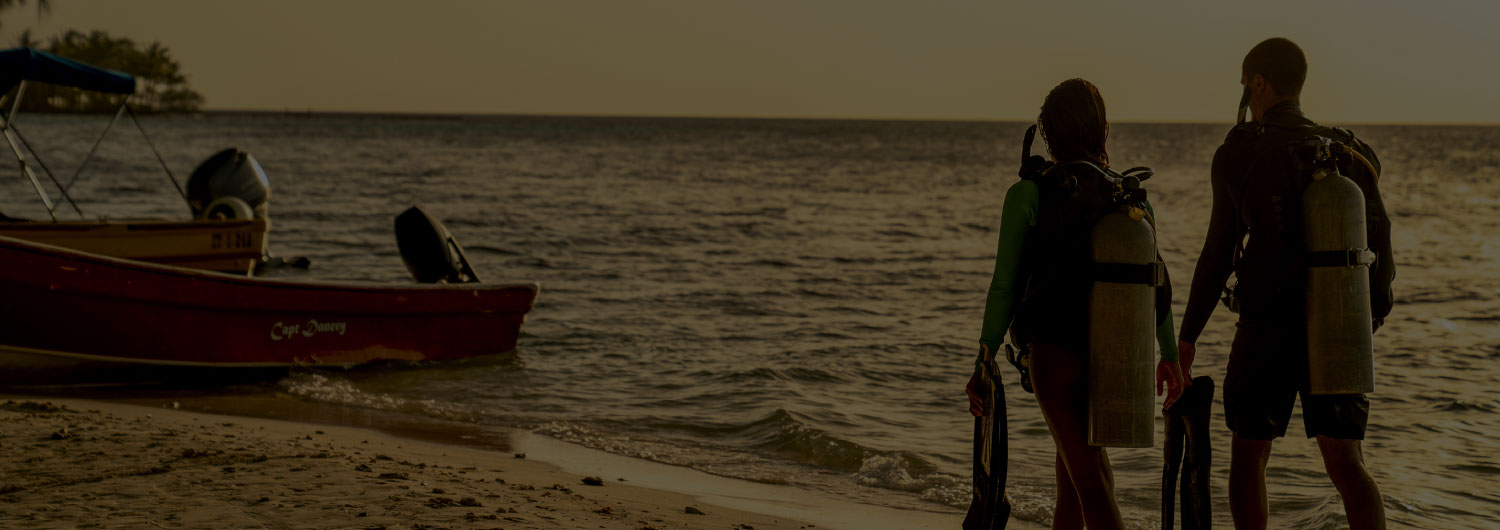
HOW TO BECOME A PADI DIVEMASTER
You're about to make a monumental decision. I'm squirming with excitement as I write this, it's bringing back the memories of when I was in your shoes. I know you're thinking about it or you wouldn't be here. Just do it, it's going to change your life!
In this article, I'm going to tell you exactly how to become a PADI Divemaster. Squeeee!
I'll cover
- The job - what exactly does a PADI Divemaster do, and where do you find work once you're qualified?
- The pre-requisites - the courses (and some other stuff) you need to complete before you begin
- The program - what you'll do during your PADI Divemaster training
- The dive centre - every dive centre can offer the PADI Divemaster course, here's how to choose the right one
- The gear - if you're going to work as a PADI Divemaster, you're going to have to look the part!
THE JOB
The PADI Divemaster qualification is your first foray into the professional diving world. Wave goodbye to the recreational levels, you're not just a hobby diver anymore. You will get paid to go diving. Every. Single. Day.
It's literally a dream job.
PADI Divemasters are the life and soul of the party. You're the entertainer, the guide, the logistics, the kit washer, the social butterfly and you're usually the last one to leave the bar every night. Then, the next day you wake up early and do it all over again!
When you become a PADI Divemaster, there's two places you can work - the UK and abroad. And I know that's a very sweeping statement and there will be job opportunities where there are differences, but generally, you take on a different role in those two places.
Abroad, your job as a PADI Divemaster will be as a guide. You take a group of fun divers and show them incredible stuff underwater. You take care of all their logistics, you make sure they're having a great time, you meet up in the bar afterward and fill in log books.
In the UK, you'll probably do some guiding, but you'll also play a more important role - when you become a PADI Divemaster, you become the assistant to the instructor. You might do this abroad too, but in the UK it's a legal requirement that we have a safety diver with us and you guessed it, that's going to be YOU! The conditions in the UK can be challenging. We're not diving in 30m viz of the tropics. It can be cold, it can be low viz and your instructor needs your help!
As a PADI Divemaster, you'll guide and assist and you'll also be able to:
- Run the ReActivate program to get divers refreshed and back up to speed if they've been out of the water for a while
- Take student divers on adventure dives (the dives they'll do as part of the Advanced course) and assess their skills to report back to their Instructor
- Teach and certify PADI Advanced Snorkellers
- Conduct the Discover Snorkelling program
- Take Discover Scuba Diving participants out for dives once the Instructor has done their thang with them (you'll also be able to do the pool sessions if you do your Discover Scuba Diver Leader qualification)
So, the golden question. How much are you going to get paid once you become a PADI Divemaster? Well... it depends where you work, but you need to be realistic in your expectations. You definitely won't make your millions with a career in diving, but I guarantee you'll have a lifestyle that will make all your mates incredibly jealous. You'll travel the world, meet incredible people, dive every day and have so much fun. You couldn't pay me millions to leave this lifestyle and go back to a normal job!
As a PADI Divemaster working abroad, you can expect to earn a small salary or commission for the work you do. It should be enough to pay your living costs, but there' probably won't be much left at the end of the month (especially if you're running that bar tab!)
Unfortunately, the dream falls a little bit flat when you become a PADI Divemaster in the UK looking for work. Full-time jobs for DMs are few and far between. Even though your role is absolutely essential to a UK dive centre, many DMs work for free. I could write a whole blog post on why I think this is very, very wrong. But I'll save the rant for another day.
Although you can't access it right now, there is a PADI jobs board where you can start searching for work. You'll have to pass your DM course first to get your paws on it, but here's a sneak peek of what's available today to whet your appetite.
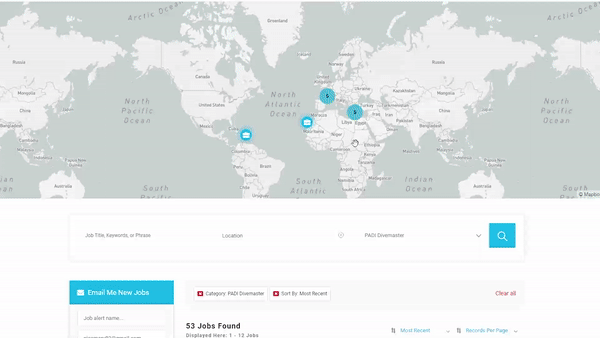
There's 53 jobs adverts for PADI Divemasters right now. Most are in Europe which kinda makes sense as travel to many diving destinations in the world is still restricted because of you know what. One thing I will mention here is that there's over 600 posts looking for Instructors. There is always more opportunities for PADI Instructors compared to PADI Divemasters for the simple reason that Instructors can do everything a Divemaster can do.
If you're on the fence about continuing on to Instructor once you've got the DM in the bag, you might find this article helpful. Divemaster vs Instructor (what's the difference) compares the two and helps you decide!
THE PRE-REQUISITES
The road to PADI Divemaster requires dedication and hard work. Before you can enter this professional level, you have to climb through the ranks of recreational diving plus have a little bit of diving experience behind you.
You will need to complete the following core courses:
You may want to expand on these too - although its not a requirement to become a PADI Divemaster, having extra experience in things like deep diving and nitrox is going to look great on your CV when you're looking for your first job.
And talking of CVs, the more rounded you are as a dive pro, the more chance you have of landing employment. You should seriously think about getting experience in things like equipment maintenance, filling cylinders and using the compressor, social media content creation, video editing, fish identification, other languages... the list is endless!
There's some other pre-requisites for the PADI Divemaster program that you need to know too:
- You must be at least 18 years old
- You will need to get this medical form signed by your doc before you start
- You need to have some first aid training that you've completed within 24 months
You will also need 40 logged dives to start the program, and certify with at least 60. The perfect reason to get out there and dive as much as you can!
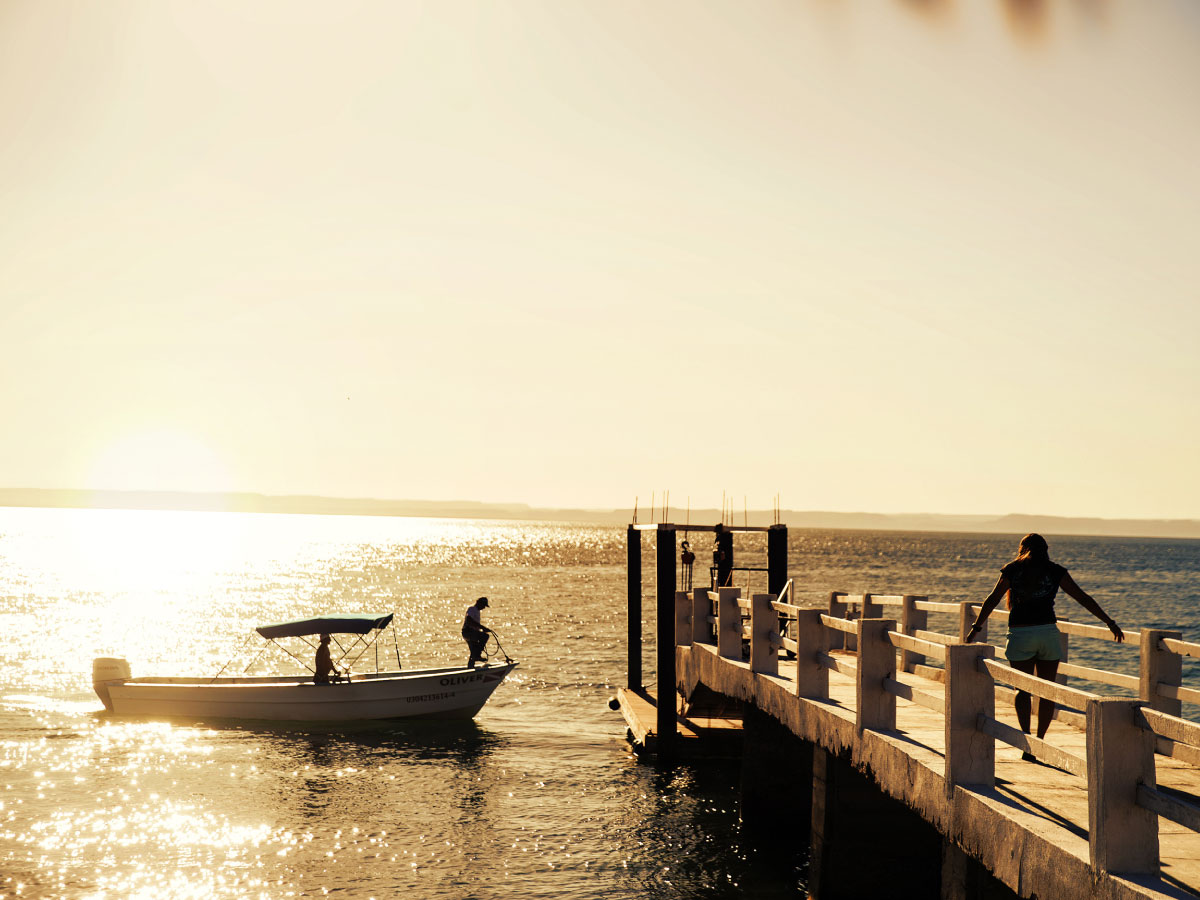
THE PADI DIVEMASTER PROGRAM
The training you take to become a PADI Divemaster is awesome. Chances are it's going to be very different from the diving courses you've already completed.
The main difference is that the whole student/instructor relationship you're used to is now a candidate/mentor relationship.
As a mentor, it's my job to help you become a PADI Divemaster who excels at their job and will enjoy an amazing career in the industry.
I'm not just teaching you monkey see monkey do diving skills anymore, I'm teaching you pretty much EVERYTHING that's in my head (some people might say it won't take very long bahah!). You need to know how to handle customers, how to solve problems, how the business of diving works. You'll learn things at a much higher level. Gone are boring classroom lectures, instead we replace them by on the job training where we can discuss everything we do.
The PADI curriculum for the Divemaster course is designed to give you all the skills and knowledge to excel as a dive pro. As you can imagine, there's a lot to cover and you need to find the dive centre that's going to give you the best bang for your buck (more on this later, but beware the dive centre that crams all this in to 1 or 2 weeks!) You also need to find the mentors that are going to teach you all the extra stuff you need to know that isn't in the curriculum! (Again, more on this later).
The PADI Divemaster program is split into 3 main sections:
1. Knowledge Development
You'll probably complete most of this through independent study, with your mentor checking in on you to help where needed. You'll be completing a couple of exams for the course too.
2. Waterskills Development
You have to rise to a number of challenges to prove your competence (and fitness) in this section. You will perform timed swims for 400m, 800m (with snorkel and fins), 100m tired diver tow, and a 15 min tread.
You need to hit a certain score, but don't worry - it's not like you need to be an Olympic swimmer to pass. I would say that as a dive pro, you need to take your fitness seriously, so be honest with yourself and if it's time to start getting healthy, get cracking!
When you become a PADI Divemaster, you need to have amazing skills. You're going to take everything you've learnt on your diving journey so far - from mask clearing to neutral buoyancy and polish it to demonstration standard. When you're out there working, you'll be teaching student divers so your skills demos have to be on point! You'll develop these during some workshops. There's 24 skills in total (plus some rescue skills) and again, you have to hit certain scores.
Finally, as part of this section you'll complete the dreaded DIVEMASTER STRESS TEST. Except FORGET EVERYTHING you've already seen on YouTube about this. Any dive centre you see ripping the DMs mask off, turning their air off - whatever ridiculous thing they do are seriously breaking standards. When they get caught doing that stuff, they'll get hauled over the coals by PADI.
It's not a stress test, it's an equipment exchange. I'm not going to tell you what will happen because that defeats the purpose of the exercise. What I can tell you is that you and your buddy are the only ones involved (no other divers will negatively interfere) and you devise a plan to complete a task set by your mentor. The idea is that the exercise throws up novel problems that you have to solve on the fly - just like a Divemaster would do in real life with real divers. It's developing your problem-solving abilities, not how much stress you can handle.
3. Practical Application
Consider this section your on-the-job training. You'll complete a number of workshops designed to help you think like a dive pro. Some help you develop the skills or gain the experience you need to become a PADI Divemaster. Others give you a chance to learn about and practice your duties as a DM. Some will be simulated (with other divers role playing) some will be with real life customers in the dive centre.
Practical Skills
- Dive site set up and management
- Mapping project
- Dive briefings
- Seach and recovery scenario
- Deep dive scenario
Divemaster conducted programs workshops
- ReActivate program
- Advanced Snorkeller course and snorkelling supervision
- Discover Scuba Diving program in confined water
- Discover Scuba Diving program in open water
- Discover Local Diving
Practical assessments
- Assisting open water diver students in confined water
- Assisting open water diver students in open water
- Handling con ed students in open water
- Handling certified divers in open water
There's a lot to get through isn't there?! You're going to have an absolute blast doing it.
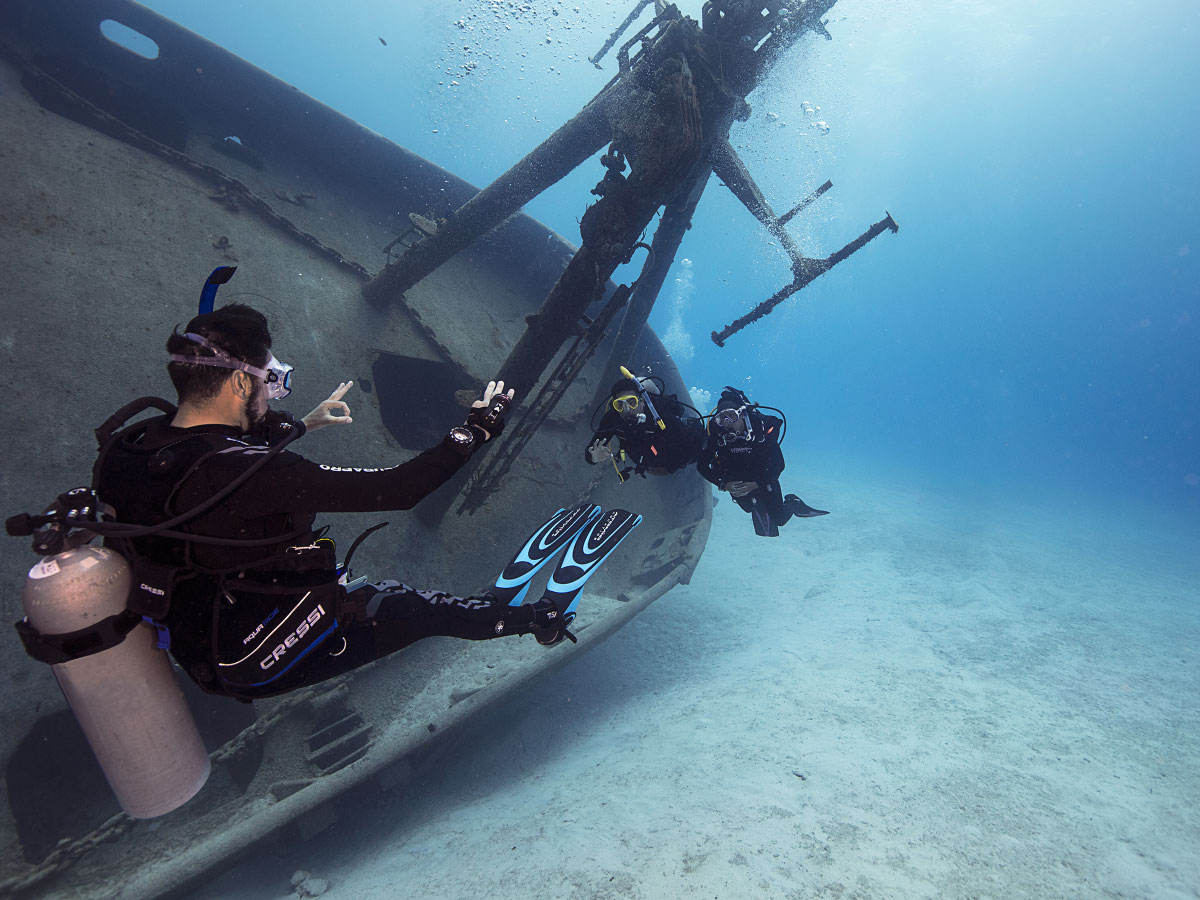
THE DIVE CENTRE
Finding the right dive centre for your training is really important. You might be super lucky and have already found the perfect place - perhaps you've already done a lot of your recreational training with them. Chances are they'll give you a canny discount too! Woot!
If you're still searching, here's some top tips to help you find the perfect match.
The people matter most
When you're looking for a dive centre for pro-level training, you need to meet the people who work there. During your DM course, you're going to become part of the team. It's much more of a hands on "on the job" training approach. You need to find the dive center where you feel like you fit in.
You also need to find out who your mentors are going to be. Send them emails, talk on the phone, go into the centre if you can or if not, catch them over a zoom call. These are the people who are going to impart their diving knowledge and wisdom to you. They're going to help shape and mould you into the Divemaster you want to become. It's really important that you find mentors that are on your wavelength. There's no point in working with someone who doesn't hold the same values as you - you'll just end up clashing.
You should also consider what direction you'd like your career to follow. Seek out centres and individuals who are experts in your chosen field. If you're interested in learning more about technical diving, check out dive centres that offer this type of training. If you want to get involved in marine conservation, find a dive centre with excellent eco-credentials that has lots of environmental activities that you can get involved with during your DM program.
To intern or not to intern, that is the question.
This is a hotly contested debate in the diving world. Should you take a PADI Divemaster internship? Well, my answer is a big fat no. I think internships suck. My reasoning is based purely on personal experience having been on both sides of the deal - I've been the intern and I've been the manager of the dive centre that offers the internship.
If something seems too good to be true, it usually is. While the thought of becoming a PADI Divemaster for free and working once you're qualified to "pay it back" is certainly appealing, I've found that this kind of relationship sours quickly.
I wrote about my experiences in more detail in the article "why we don't do diving internships at The Fifth Point"
The short version is that 9 times out of 10, I've seen DM interns being exploited. The line between on-the-job training and giving the dive centre free labour is quickly and easily blurred. The DM course is stretched out far longer than necessary and you find that you're being an unpaid kit monkey rather than cracking on with becoming a PADI Divemaster.
If you are going to go down the internship route, make sure you have everything written out in black and white and signed by both parties. There should be dates and deadlines for every stage of training and it should be very clearly agreed how long you're expected to work once you're qualified to pay it back.
The other option is to pay in full for your training, and that leads me on to my next top tip...
Pay the right price
There's no hiding that top-notch pro-level training is going to be expensive. You're paying to learn from highly qualified, experienced mentors (another reason to find out more about them!) and you're investing this money to kick-start your career in the diving industry.
I've already mentioned you should be wary of any PADI Divemaster course that is 2 weeks or less. Can you imagine rushing through all of those workshops listed above? That's going to be one hell of an intense course, you'll be knackered.
There's going to be a bit of a compromise between how much spare time you have to dedicate to this training vs making sure you have enough time to cover everything in detail plus develop and grow as a dive pro.
I can't tell you what's best here, you need to make that decision for yourself. I'd urge you to spend as much time as you can in your training. Absorb everything, work hard and milk your mentors for as much knowledge as possible! It'll set you up for the best start in your new job.
You should also be wary of cheap Divemaster courses. But how do you know what's "cheap"? I've found the easiest trick when doing research is to find a dive centre's DM price, and then compare it to their open water course price. You'd expect a 3+ week program to be more expensive than a 3+day course, right?? Your research may surprise you!
If there's any alarm bells ringing in your head, listen to them. Rember - if something seems too good to be true, it usually is!
First of all, is this cheap program going to end up with that same sour relationship as an internship? If it's too cheap, that suggests to me that you won't be given the time you need for this course - you haven't paid for it! Is your training going to be dragged out while you hump gear for free, waiting for your mentor to make time for you? I'd be annoyed by that in an internship deal, never mind if I was paying for it.
Secondly, make sure there's no hidden costs in these cheap courses. As part of this program, you will need a PADI Divemaster crew pack (current RRP £282.64) and you need to pay your application fees to PADI once your training is complete (currently £111.60). Does that cheap price have these two things included, or is it actually not as cheap as it first appears?
The bottom line is you've got to make sure you're getting the best bang for your buck with this training. Make sure there's a timetable for your program where you are the priority. You're not paying to just "help out" all the time, you're paying to receive excellent training.
Still not sure? Here's 5 tips to help choose a dive centre in the UK (but really, you can apply this to anywhere in the world)

THE GEAR
One question you need to ask your new potential mentors and dive centre is if you need to have all your own gear.
Some dive centres won't provide equipment for your PADI Divemaster training, and you'll be expected to arrive with everything you need (except tank and weights).
As a DM, there's certain bits of gear that you need to have. It's actually set out in black and white in the PADI Instructor manual. There's all the obvious diving gear, but dive pros also need:
- A time monitoring device (so if your dive computer doesn't have a stop watch on it, you might have to invest in a cheapy waterproof watch)
- Compass
- Knife/divers tool (except where prohibited locally)
- Two surface signalling devices - one audible (e.g. a whistle, air horn etc) and one visible (e.g. SMB, flare, signal mirror etc)
- Dive flag (where required locally)
- and either your dive computer instructions for use or and RDP/eRDPml
So, ask the question and find out what you need to invest in. To be honest, if your goal is to make scuba diving your job, you should start building your dive kit now. You can't always rely on the dive centre to provide your gear - they need it for their students!
When choosing kit, if at all possible, go for more expensive gear that will last. There's nothing worse than buying cheap entry-level gear only for it to break halfway through the season because it wasn't durable enough. Dive pro kit gets one hell of a beating. It gets used every day, left out in the sun, probably not rinsed as well as it could be - you need some good quality equipment that will keep you safe.
If you need any advice, give us a shout at The Honest Diver. We've tested everything that we sell so we know what works for busy dive pros!
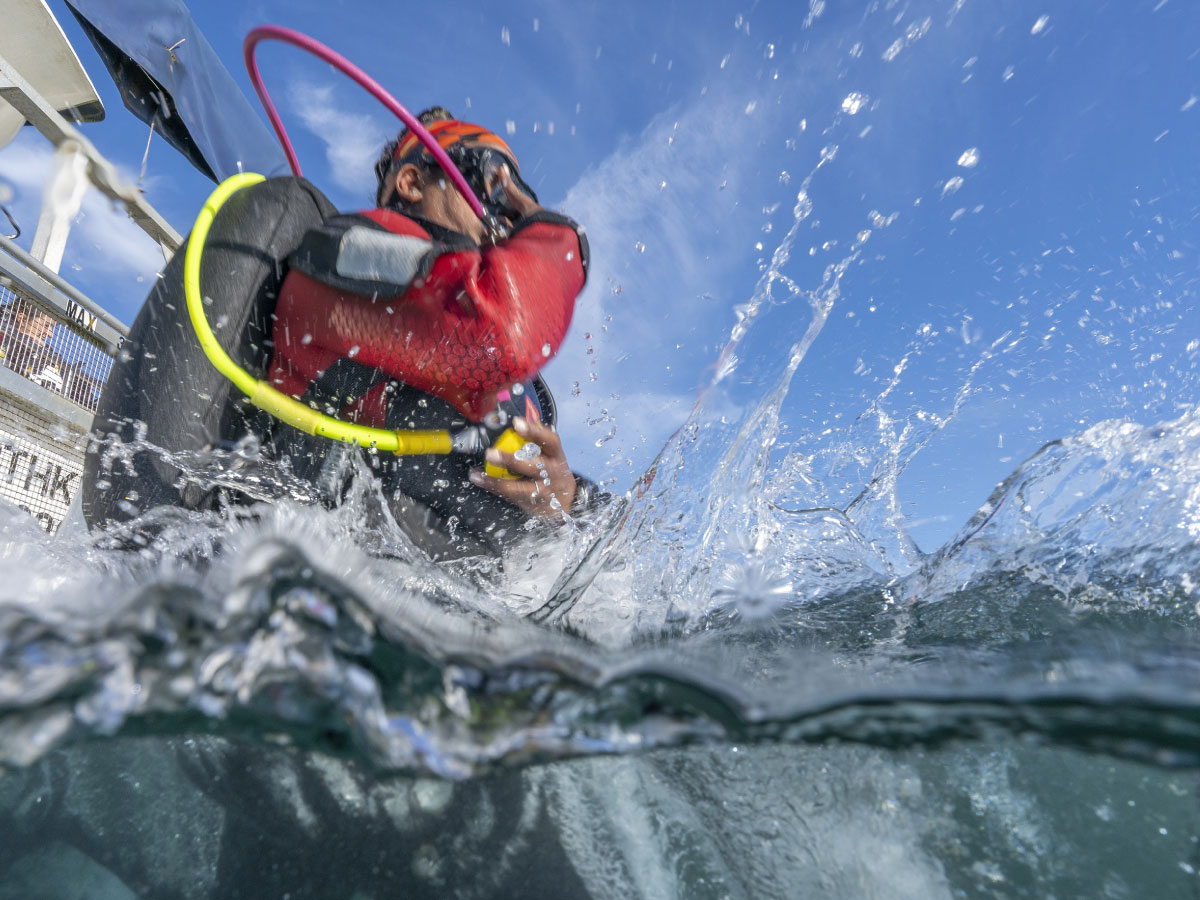
WHAT ARE YOU WAITING FOR, IT'S TIME TO BECOME A PADI DIVEMASTER
That's it, you know everything you need to know to become a PADI Divemaster.
If this article has thrown up any questions, reach out! I'm more than happy to help. Just drop me an email and I'll reply pretty quick.
If you're interested in joining The Fifth Point for your DM training, you can find more info here.